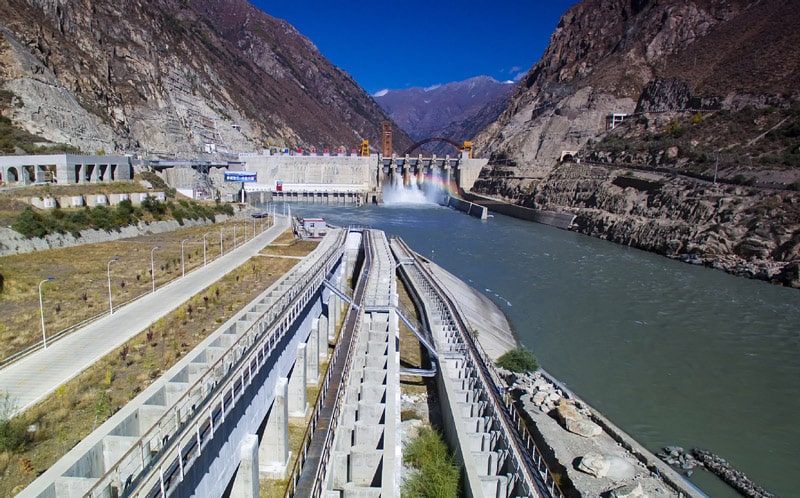China’s aggressive crackdown on Bitcoin mining has had unintended consequences, forcing small-scale hydropower station owners to sell their facilities. As the government pressures miners and targets carbon emissions, the once-thriving market for inexpensive energy is collapsing, leaving hydroelectric plant owners with little choice but to offload their assets.
Hydropower Stations: From Demand to Despair
Market for Hydropower Stations
- Platforms like Xianyu, China’s online marketplace, now feature advertisements for second-hand hydropower stations.
- These small-scale plants, often with capacities around 50 megawatts, are hitting the market as Bitcoin mining companies shut down.
Rising Offers
- Vendors report a significant rise in offers since the crackdown began in May.
- One vendor mentioned that prices have dropped drastically, while another hinted at the possibility of covert Bitcoin mining with a private hydropower station.
Hydropower in Sichuan: A Lost Opportunity
Rich Resources
- Many of the facilities for sale are in Sichuan, a region renowned for its abundant water resources and cheap energy.
- In the past, local authorities promoted a symbiotic relationship between miners and hydropower plants.
The Fallout
- Last week, 26 Bitcoin mining companies in Sichuan were forced to halt operations.
- The region, which once benefited from Bitcoin mining’s energy demands, now faces a steep decline in power consumption.
China’s Stance on Bitcoin and Renewable Energy
The Ban on Bitcoin Mining
- China’s ban on Bitcoin mining aligns with its goals to develop a central bank digital currency (CBDC) and meet its ambitious climate targets.
Energy and Environmental Concerns
- Bitcoin mining consumes enormous energy, contributing significantly to carbon emissions.
- According to Cambridge University, the Bitcoin network’s carbon footprint was once equivalent to burning 61 billion pounds of coal annually.
The Duality of Hydropower
Renewable Energy Source
- Hydropower stations produce renewable energy with a low carbon footprint, positioning them as a sustainable energy source.
- However, even hydropower facilities have been caught in the crossfire of China’s comprehensive mining ban.
Missed Opportunities
- With the Bitcoin network’s hash rate dropping earlier this year due to coal mine floods in Xinjiang, reliance on fossil fuels became evident.
- Hydropower, which could offer a greener alternative, is underutilized due to the regulatory clampdown.
The Global Ripple Effect
Miners Fleeing China
- Crypto miners are migrating to crypto-friendly regions, such as Kazakhstan and Texas, to continue operations.
- This shift could reshape global energy markets and the distribution of Bitcoin mining power.
Impact on China’s Renewable Energy Sector
- The decline in Bitcoin mining has reduced demand for cheap renewable energy in regions like Sichuan and Yunnan.
- Hydropower stations, once integral to mining operations, now face uncertainty.
FAQs
Why are hydropower stations for sale in China?
China’s crackdown on Bitcoin mining has reduced the demand for inexpensive power, leaving hydropower station owners struggling to maintain operations.
Where are these hydropower stations located?
Many of the hydropower facilities are in Sichuan, a region with abundant water resources and historically cheap energy.
What prompted China’s crackdown on Bitcoin mining?
China aims to reduce carbon emissions, meet its climate goals, and strengthen its focus on developing a central bank digital currency (CBDC).
How does Bitcoin mining impact the environment?
Bitcoin mining is energy-intensive and relies heavily on fossil fuels, contributing significantly to carbon emissions. In 2021, its carbon footprint was comparable to burning 61 billion pounds of coal annually.
Can hydropower be used for Bitcoin mining?
Yes, hydropower is a renewable energy source with a low carbon footprint, making it an ideal alternative for sustainable Bitcoin mining operations.
What is the global impact of China’s mining ban?
The ban has led to a mass exodus of miners to regions with crypto-friendly policies and cheaper energy, reshaping the global mining landscape.
Conclusion
China’s Bitcoin mining ban has sent ripples through both the cryptocurrency world and the energy market. While hydropower stations offer a renewable energy solution, their potential remains untapped due to regulatory pressures. As miners migrate and hydropower facilities hit the market, China’s move raises questions about balancing environmental goals with technological innovation.
For more insights into the intersection of cryptocurrency and renewable energy, explore our article on latest news, where we examine the global implications of China’s crypto crackdown.
Disclaimer: The information provided is not trading advice, Bitcoinworld.co.in holds no liability for any investments made based on the information provided on this page. We strongly recommend independent research and/or consultation with a qualified professional before making any investment decisions.




